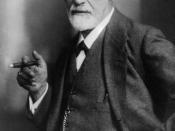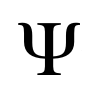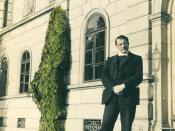Our personality is a tough code to crack because of its beautiful complexity of feelings and behaviors. Many psychologists theorized many understandings of the human personality, such theories are the psychoanalysis perspective and the humanistic perspective.
Austrian psychiatrist Sigmund Freud was a man who believed that by exploring the unconscious minds of disturbed patients, he would get to the root of their personality. Sigmund Freud called his theory and technique for analyzing broken patients the psychoanalysis perspective. The psychodynamic perspective takes in other ideas that were influenced by Freud. They accepted the basic ideas such as the mind was concocted by our ID, which is the trait to seek pleasure, our superego the conscience, and the ego, which balances out the ID and the superego, childhood experiences, and defense mechanisms. Alfred Adler, Karen Horney and Carl Jung altered the fact that Freud based childhood experiences upon social experiences, not sexual, is important for personality development.
Adler and Horney emphasized the social factors, they explained that our motivations are driven to conquer our childhood feelings of inferiority gives us the desire to crave love, security and power. Carl Jung emphasized on the unconscious (similar to Freud). He believed that the mind contains more than just repressed thoughts and feelings; his concept of 'collective unconscious' explains that we inherit memory from our past.
In contrast to the psychodynamic perspectives, the humanist perspectives studies healthy people thus taking a more positive outlook upon personality. Two important psychologists lead the humanistic point of view, Carl Rogers and Abraham Maslow, these two psychologists emphasized on fulfilling our potential. Abraham Maslow who created the hierarchy of needs believed that humans ultimately seek self-actualization (or our highest potential). Carl Rogers agreed with Maslow, he explains that our deep inner drives are our desires to become perfect and...


